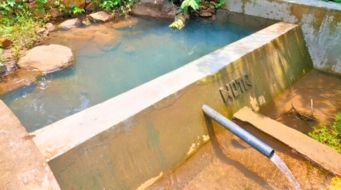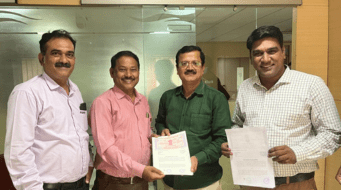(Based on data gathered up to May 30)
Upscaling COVID-19 relief measures in rural areas will ensure that the deadly virus is stopped in its tracks before it further ravages the rural economy largely dependent on agriculture
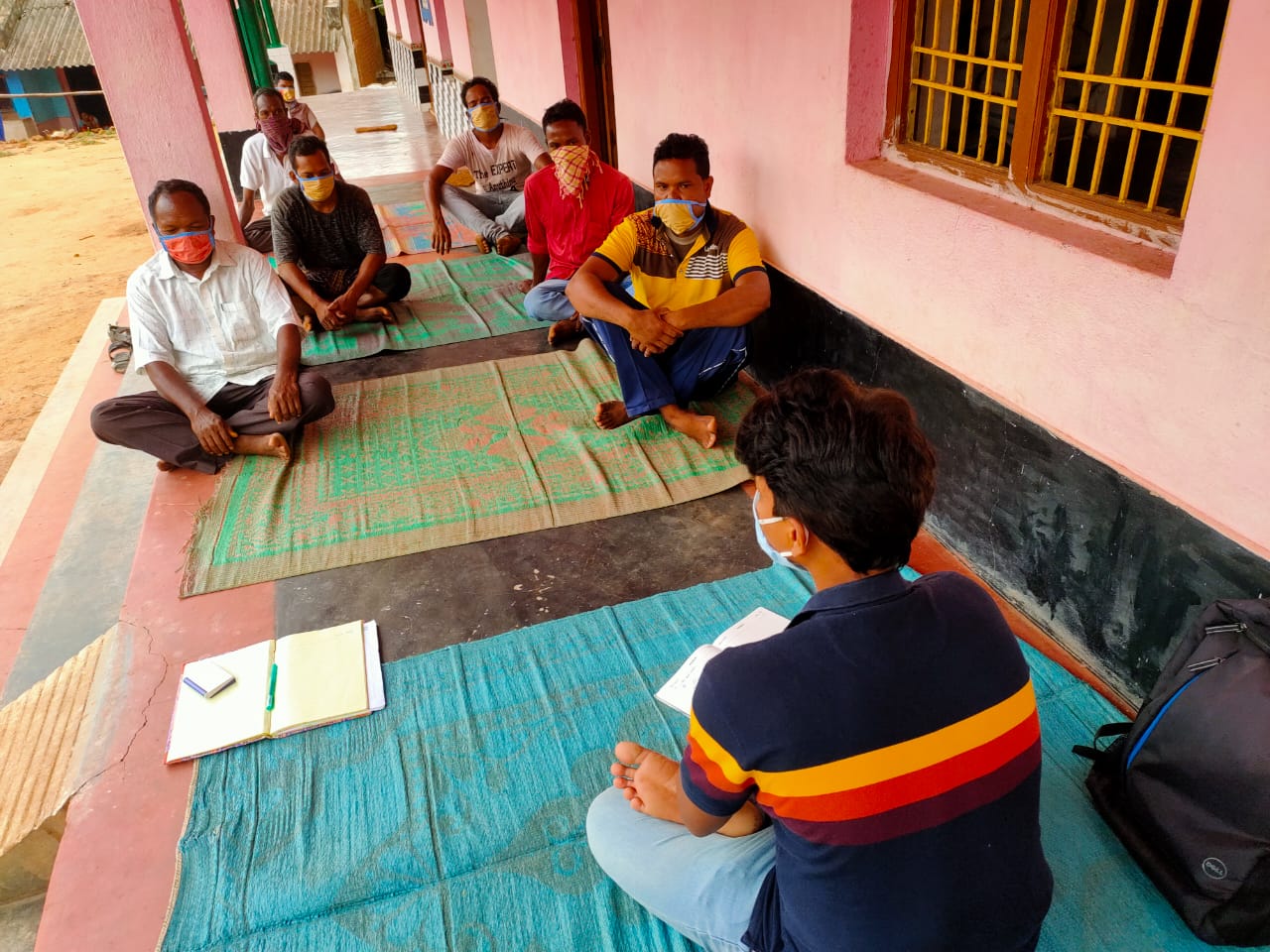
A village-level meeting in progress in Kinteda village, Rayagada district, Odisha
As the scale of COVID-19 spread becomes more and more apparent in our major urban centres, the state of affairs in rural India is yet to unravel. At the moment, rural pockets remain more or less insulated from the grip of the pandemic.
COVID-19 has claimed over 7,000 lives in the country and at least 250,000 people are infected by the disease. Globally, 6.8 million individuals have tested positive and 400,000 have succumbed.
Poor infrastructure and a failing economy have already shattered the lives of millions. It is in these times that WOTR’s work assumes greater importance.
In a largely agriculture-dependent economy, with a labour force that sustain farm activities now in a fix, it is critical that all that is crucial is done and provided for — to facilitate and revive the vital linkages and networks that hold the agricultural cycle together and to restore rural community life back to normal. Especially when the kharif season is around the corner.
Outreach
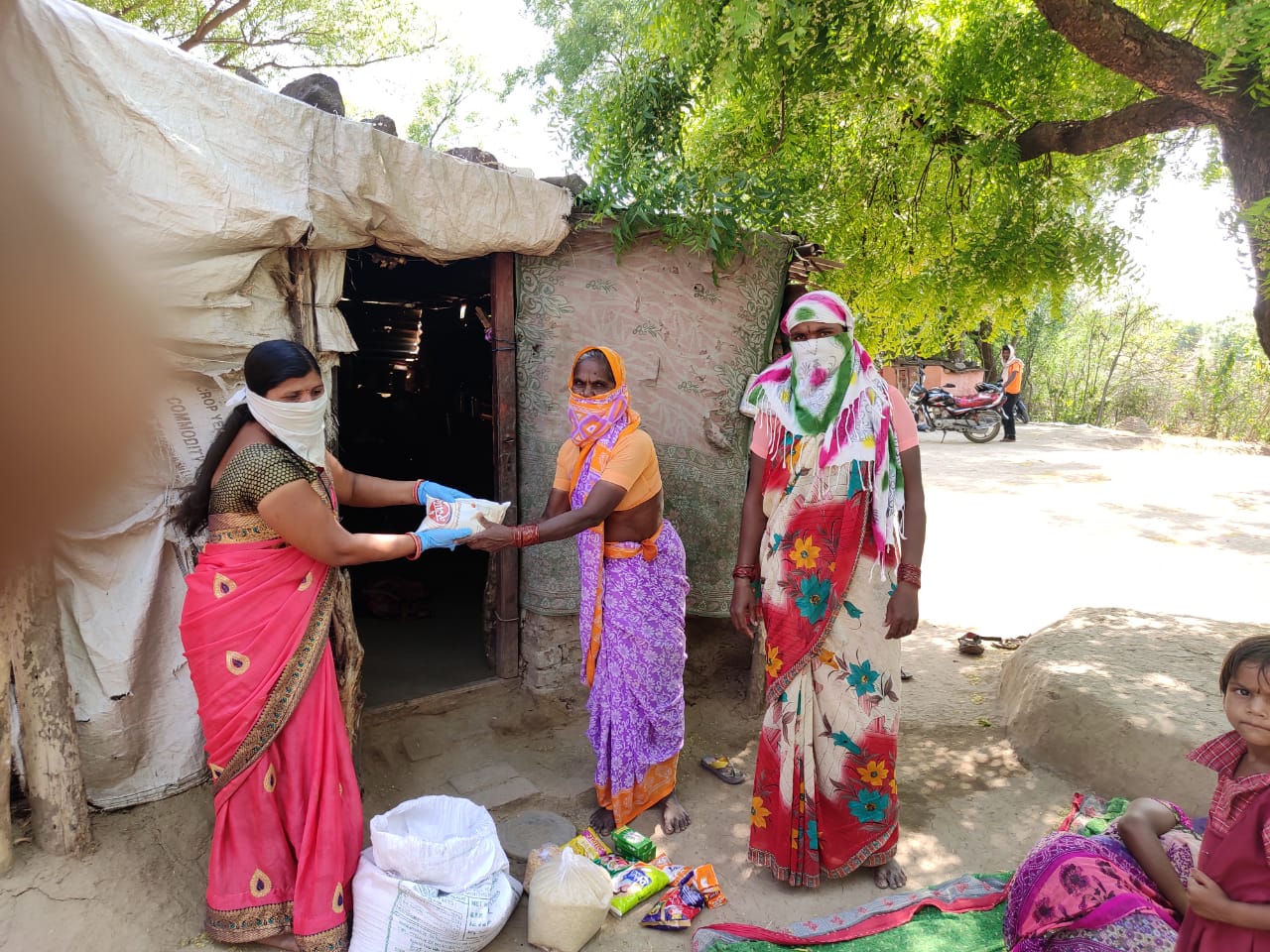
Distribution of essentials at Gangapur block of Aurangabad district, Maharashtra
With fully operational and staffed regional centres in seven states – Maharashtra, Madhya Pradesh, Telangana, Odisha, Jharkhand, Chhattisgarh and Rajasthan – WOTR is better informed and prepared to tackle the fallout of the pandemic in its project areas.
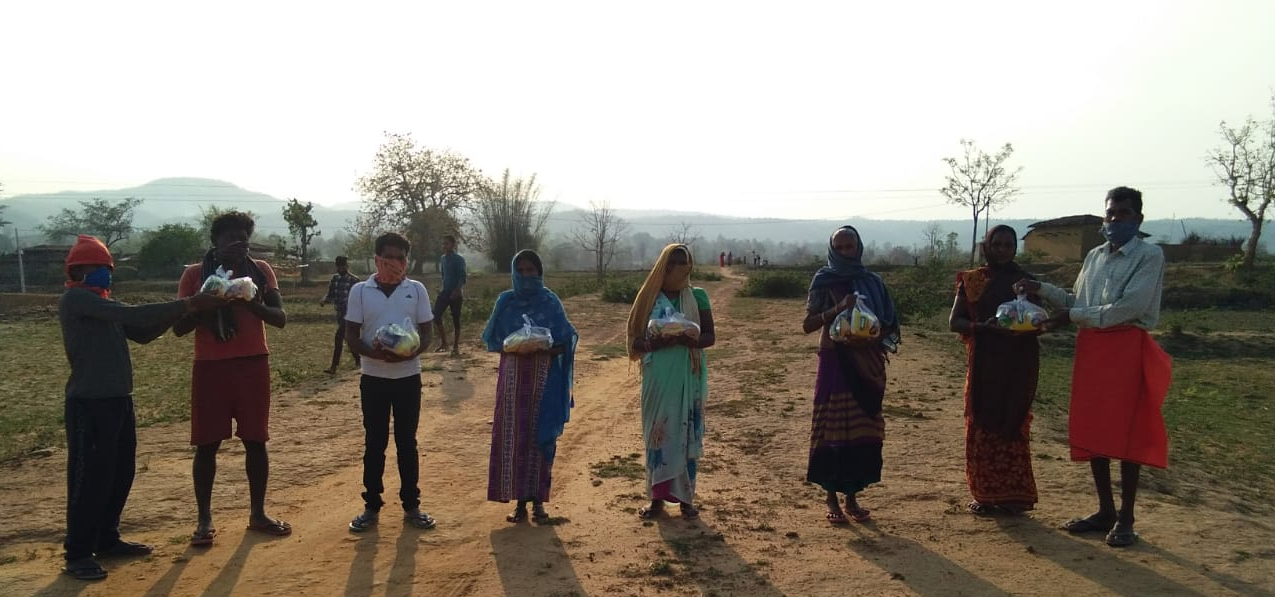
Distribution of grocery kits in Chhattisgarh
WOTR has been actively supporting communities on the ground since the deadly outbreak. According to data gathered until May 30, we have reached out to 123,203 households in 646 villages of 25 districts in seven states. Out of this 423 villages and 96,454 households are in Maharashtra.
Communications / Awareness
In times of fake news, rapidly spreading rumours and digital echo chambers that may lead unsuspecting folk astray, providing accurate information based on facts to the rural communities is one among WOTR’s primary focus areas. Even in the international context, new uncertainties about the nature of COVID-19 keep surfacing by the day, spreading confusion and fear. That is precisely why WOTR is ensuring that villagers stay informed about COVID-19.
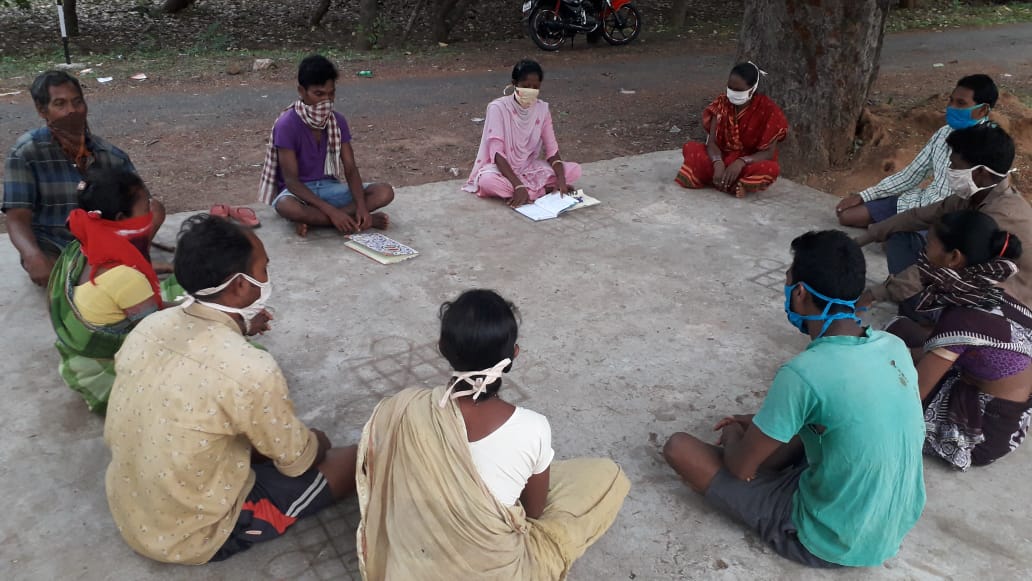
A Village Development Committee meeting in progress at Udap Garjang village, Odisha, held by Wasundhara Sevika Geeta Raitaa and Wasundhara Sevak Prem Sabar
WOTR has conducted 2,196 awareness sessions impacting 153,862 individuals up until May 30. 17 training sessions saw 1,039 participants of which 408 were women. 216 gram panchayat members, 364 Village Development/Health Committee members, 141 SHG members, 110 community members, 180 Wasundhara Sevikas/Sevaks and 28 government officers attended these training sessions.
Employment / Livelihood
In these uncertain times, as far as WOTR is concerned, one thing is certain – providing employment in project villages, so that rural life goes on as normal as it was pre-COVID-19.

Stone bund work at Katakhali village in Ganjam district of Odisha
WOTR along with MNREGA created 238,540 labour days, employing 13,154 labourers. The labourers are involved in soil and water conservation, and irrigation activities. Since April 1, 10,006 families have benefitted from labour so far. We have spent Rs 1.92 cr and Rs 2.33 cr through MNREGA since April 1 in wages.
Migrant returnees
The return of the migrant population to their native villages is unprecedented in its sheer scale – many of them walking for days on end to reach home. Famished and impoverished they reach their villages hoping to make ends meet and start anew.
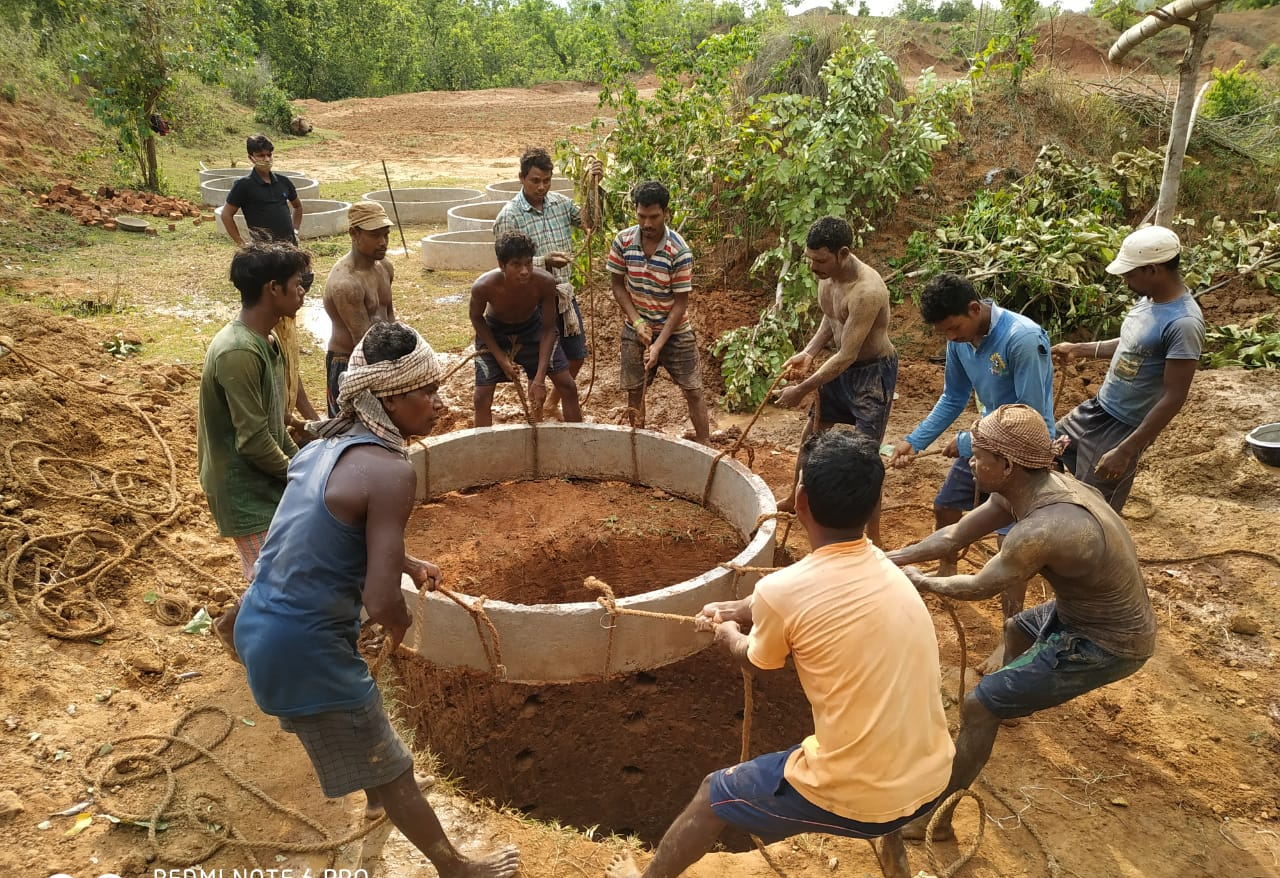
A well construction work in progress at Gunupur cluster in Odisha
As of May 30, 18,127 returning migrants have arrived in WOTR’s project villages of which 5,095 are in quarantine. We have provided support for 923 migrant returnees as of May 30.
Distribution of essentials
Access to supply of essentials remains a challenge for people living in villages whose lives were upended by the lockdown. Migrant workers, daily wagers, children and women – those already living in poverty are the worst affected and face greater risk.
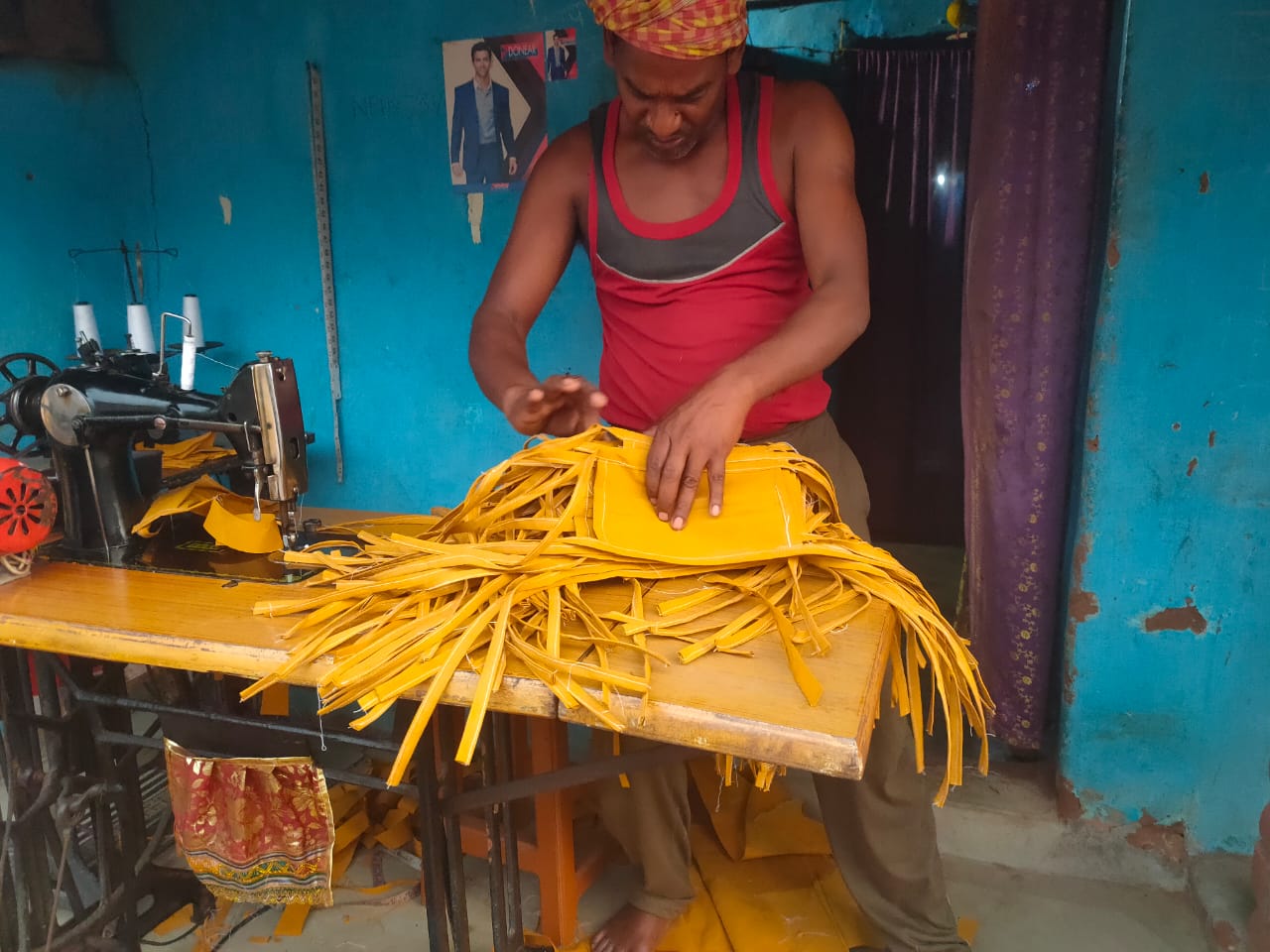
Sewing and distribution of protective face masks in Odisha
WOTR has been distributing essentials such as grocery kits, sanitary kits and protective face masks at the village-level. 311 tailors made 79,122 face masks. 96,537 individuals received face masks.
‘Grateful to WOTR’: Somi Bai from Seoni, MP
Somi bai/Pusu Lal Tekham who hails from Bisapur Ryt village in Kurai Tehsil in Seoni District of Madhya Pradesh belongs to a poor family of three members. “My husband died a long time ago. Due to the lockdown we couldn’t find any work. We couldn’t even buy food supplies as we had no money. We are grateful to WOTR for providing us ration kits and other essentials,” she says.
Till date, WOTR has distributed 7,562 grocery kits, 27,014 sanitary kits and 79,122 face masks across its seven project states apart from facilitating PDS to 6,153 households.
Support for sustenance
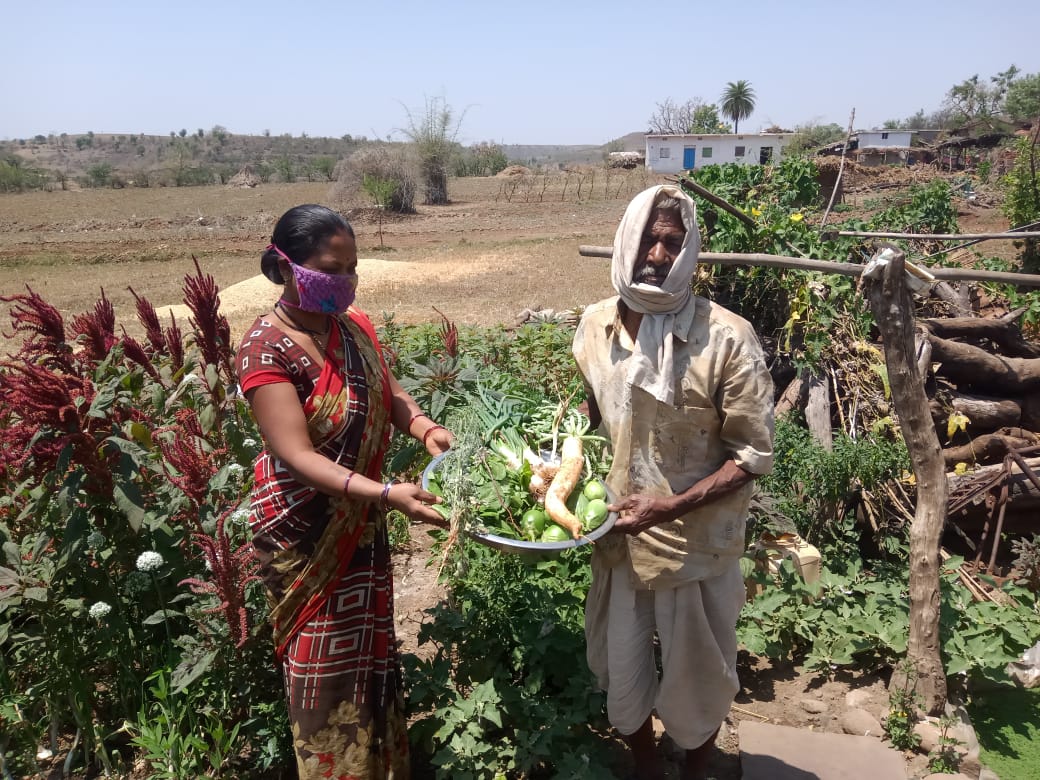
A farmer in Chindwara district of Madhya Pradesh distributing vegetables grown at his farm
WOTR was already implementing multilayer farming and kitchen garden activities before the onset of the pandemic. Now, this has proved to be highly beneficial to rural communities. The initiatives aim to improve household food security, making people self-reliant during crises, such as drought or an outbreak of unprecedented scale like COVID-19.
WOTR’s initiative a boon in testing times, says villager
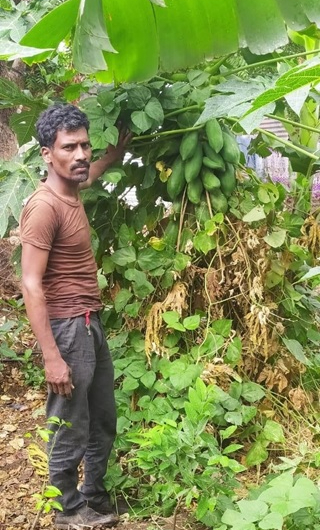
Ganesh Janardhan Bhombe from Adgaon village of Bhokardan block in Jalna district of Maharashtra is a beneficiary of multilayer farming.
“Last year, in the village development committee meeting, we were introduced to multilayer farming. The village development committee nominated me for taking up this activity. Through this, we planted various fruits and vegetables and used rain pipe irrigation system. We also used organic manure and pesticides. Hence it reduced the input cost on chemical fertilisers and pesticides. Using this method, I saved Rs 300-500 every week, producing fresh organic vegetables for consumption. As the market is closed due to lockdown, I distributed the surplus vegetables and fruits to the villagers too,” says Ganesh.
“I have become economically independent. I hope, in the future, I will be able to earn more from fruits and vegetables. Now, more than twenty farmers are involved in multilayer farming here. This has been a wonderful experience,” adds Ganesh.
As of May 30, 2020, 24,126 households have benefitted from 11,591 kitchen gardens and 433 multilayer farms.
Besides, WOTR helped in the sale of 12,764 quintals of agri produce — 12,529 Q rice, 200 Q wheat and 35 Q vegetables. 1,775 families received Rs 2.27 cr from the sale.
Community mobilisation
WOTR’s ground staff — Wasundhara Sevak/Sevikas along the with other village-level workers including the Panlot sevaks, Jal sevaks, Mahila Pravartaks, Village Development Committees and Self Help Groups — have risen to the extraordinary challenge to combat COVID-19. They have been actively supporting village communities through providing lifesaving hygiene essentials, awareness campaigns, sewing and distributing face masks and sanitisation kits, besides providing essential supplies.
As of May 30, 2020, WOTR has 3,226 active personnel on the ground of which 1,194 are women.
Access to cash / How WOTR’s Wasundhara Sevak is helping villagers in MP
Wasundhara Sevak Bijulal Narre realised that a major problem villagers are facing due to the lockdown is the flow of cash. Bijulal hails from the Jamalpaani village in Chhindwara district of Madhya Pradesh. The neighbouring villages of Markawada and Mundidhana also face the same problem.
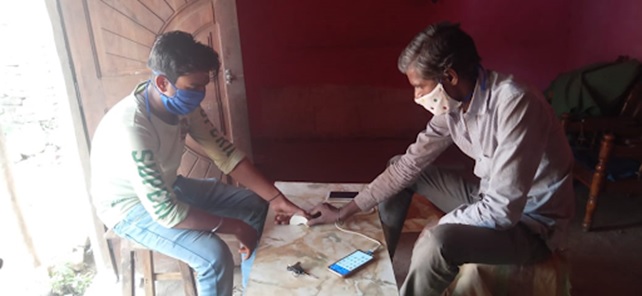
Bijulal helping a villager to access cash
He observed that the villagers were falling short of cash and hence were not able to purchase essential groceries or medicines.
The nearest bank or ATM were not within walkable distance. There was no means of transportation. Bijulal then arranged a biometric device and installed ‘Pay Nearby’ app for digital money transfer on his phone.
Villagers, with the help of their Aadhar card, are now able make use of this service. Bijulal visits the bank frequently, withdraws money, and gives it to the rightful owner. He collects the biometric print for verification purpose. Bijulal is praised by the villagers for the steps he took in the time of crisis.
Media coverage
WOTR’s response to COVID-19 have been covered extensively by the media. As of May 30, 2020, 27 news articles appeared in local newspapers and eight news stories in local television networks.
Acknowledgement
WOTR is grateful for the generous support of our donors, friends and colleagues who have made possible all of the above interventions. We would like to thank Becker-Cordes Stiftung, Bread for the World, EATON India Foundation, Education for Employability Foundation (E2F) through the Rapid Community Response to COVID-19 Group (RCRC), Hindustan Unilever Foundation, IDH Sustainable Trade Initiative, IndusInd Bank Ltd, AXIS Bank Foundation, Khandke Wind Energy Pvt. Ltd, Rotary Club of Pune, Supraja Foundation, Tata Steel Foundation and the American Friends of WOTR and WOTRians who have spontaneously contributed a part of their salaries.

